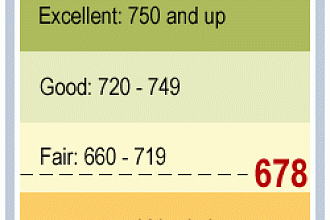While retirement often seems be just a distant dream for many of us, eventually we all hope to reach a point in our lives when we can leave the ranks of the workforce. Hopefully, we will have followed the financial principles of the Bible and set aside enough savings to maintain a comfortable lifestyle in our retirement.
King Solomon said, “through wisdom is an house builded; and by understanding it is established: And by knowledge shall the chambers be filled with all precious and pleasant riches.” Proverbs 24:3-4.
One of the most effective ways that you can prepare for retirement is by contributing to your company’s 401k plan. Unfortunately, nearly 30% of individuals who have access to 401k plans decline to participate at all. For younger workers under the age of 30, less than 50% contribute to 401k plans.
Providing for a secure financial future is one of the marks of a prudent individual. Making regular contributions to a 401k plan while you’re young results in two major advantages.
1. Since you have an early start, you won’t need to contribute as much of your salary as you would if you started saving for retirement later in life.
2. Due to the power of compound interest, your nest egg will end up much larger than if you delayed saving for retirement.
The primary advantage in contributing to a 401k plan is that most companies will match your individual contributions up to a certain level. While these matching programs vary widely, the most common formula used by companies is a match of 50 cents on the dollar up to the first 6% of pay, according to the Profit Sharing/401(k) Council of America.
An individual making $50,000 per year that contributes 6% of their income to their 401k plan receives an additional $1,500 on their $3,000 contribution. The matching contribution from your employer results in an immediate 50% return on your investment. Failing to contribute at least enough to receive these matching funds is the same as declining free money.
Most companies consider their 401k matching program to be part of the overall benefits package that they offer employees. When employees fail to take advantage of this program, they are in effect declining part of their compensation package.
While it’s always recommended to contribute at least enough to receive matching funds from your company, you shouldn’t just stop there. The end result of years of savings will be affected by two factors:
1. How your investments perform?
2. How much you contribute to savings?
You may be surprised to learn that how much you contribute generally plays the biggest role in how much money you will have when you retire. So while you should start out by contributing enough to receive the maximum matching levels, you should also strive to increase your savings levels by 1-2% each year. An easy way to do this is to just increase your 401k contribution level each time you receive a salary increase. This allows you to increase your retirement savings without reducing your take-home pay.
Originally from here
Posted on Shalom Adventure by: Brenda Miller

_medium.jpg)
























